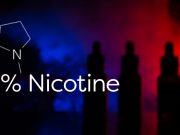Compiled by Vape Club, the 2024 Underage Vape Sales Report which analysed new FOI data from 138 UK councils, investigated the ongoing issue of underage vape sales in the UK, using data from 138 local authorities. Despite legal prohibitions against selling vaping products to minors, the paper highlighted the prevalence of underage sales and indicated that current enforcement efforts are insufficient.
Underage vape sales varied by region, revealed the report, with Liverpool, Manchester, and Cheshire East being the most affected, while London had a high success rate in catching sellers. Despite an increase in the number of test purchases, enforcement success rates have declined. Only 51% of underage sales reports led to test purchases, and just 17% of identified cases resulted in fines, with most offenders only receiving warnings. Moreover, the average fine was £400, much lower than the maximum penalty of £2,500.
A Vape Retail & Distributor Licensing Framework could solve these problems
This combination of inconsistency in enforcement and low penalties have created an environment where illegal sales are thriving. Test purchases revealed a 22% decrease in successful enforcement actions compared to 2022, indicating diminishing returns despite increased testing efforts.
As a solution to all the above, Vape Club Director and report author, Dan Marchant, is recommending the introduction of a Vape Retail & Distributor Licensing Framework. This framework would establish a sustainable funding base for enforcement, as well as hold the vape industry accountable. It would also reduce youth access to vaping products, while empowering local authorities to effectively enforce regulations. Such a licensing framework would of course benefit all stakeholders and potentially help restore public trust in the legitimate vape market.
The report concluded that setting stronger and more consistent enforcement measures to combat underage vaping, alongside an increase in fines and a licensing framework would be effective deterrents to potential offenders. These measures should be viewed as essential steps towards achieving the UK’s smoke-free 2030 ambition, while ensuring that vaping remains a viable alternative for adult smokers seeking to quit.
Vapes made to look like stationary
Meanwhile last year, news reports about vape items made to look like stationary and making their way from China, were all over the UK media. Sadly, similar news headlines are now making the rounds of US news agencies. Vapes disguised as everyday items, such as pens, highlighters, USB drives, ballpoint pens, smartphone cases, and smartwatches are in circulation, as well as vaping backpacks and hoodies that conceal tubing and a mouthpiece, allowing underage users to vape discreetly.
These cleverly camouflaged devices are difficult to detect, making it easy for students to smuggle them into schools and use them without being noticed. This issue has prompted both state and federal lawmakers to consider new regulations to address the rising trend. Despite age verification measures, such as requiring an ID to buy vapes online, students still manage to obtain them, often with the help of older peers or on the black market.
A text-based quit vaping programme for teens
Meanwhile, as many policy makers scramble around to decrease teen access to vapes, a recent study published in JAMA investigated the effectiveness of a text message program called “This is Quitting” aimed at helping teenagers quit vaping. The randomized controlled trial involved 1,681 teens aged 13-17 who were regular vapers. Participants were divided into an intervention group that received interactive, personalized text messages and a control group. The messages, based on social cognitive theory, provided support, skill-building, and information about the dangers of vaping.
The study found that the text message program significantly increased quitting rates by 35% compared to controls. By the end of the study, 53% of the intervention group achieved dual abstinence (quitting both e-cigarettes and combustible tobacco), a much higher rate than in the control group. The program proved effective regardless of the participants’ nicotine dependence or mental health challenges. This success highlighted the potential of digital behaviour change interventions in helping teens quit vaping.












